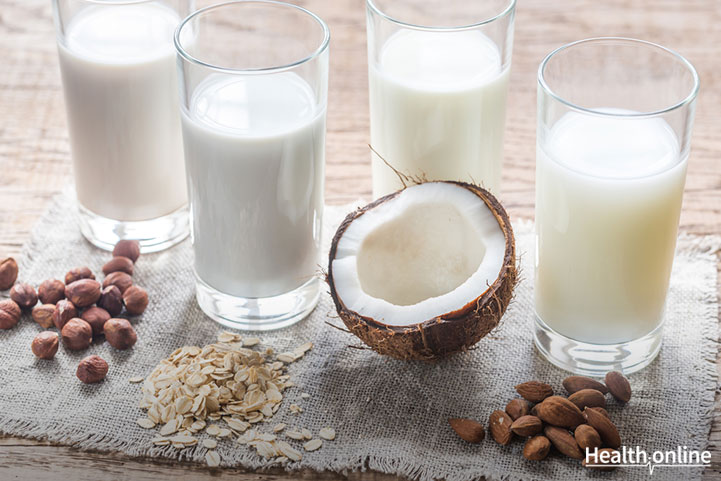
Benefits and Hazards of a Dairy-free Diet
Chances are, you’re reading this right now because the words ‘dairy-free diet’ in the title piqued your interest. So are you planning to quit dairy for good? Wondering what would happen if you quit dairy? Want to know about the hazards and benefits of going dairy free? Then you’re at the right place!
An average American consumes dairy in the form of cheese (36 pounds), ice cream (24 pounds), milk and cream (200 pounds) [as stated by the USDA]. But these numbers are coming down drastically. This is owing to the rapidly spreading awareness among people regarding the benefits of quitting dairy. But there’s also a dark side to saying goodbye to dairy as well. We shall endeavor to provide both perspectives below.
Why do people quit dairy?
There are various reasons for doing this, the primary ones being:
- To lose weight
- Get clear skin
- Prevent disease
- Increase energy levels
- Improve overall fitness
The hazards of a dairy-free diet
If you can remember the basic biology that you learned in school, then you must be familiar with the mineral calcium. Calcium is required for the growth, development, and maintenance of the bones. For an average human being, the bone density increases day by day till the age of thirty. Following this, he constantly loses a part of calcium, leading to slow but progressive degeneration. This explains why women after thirty start facing issues of bone pain, which get exacerbated during menopause. The same is true for men as they age. So quitting dairy completely, and all of a sudden will lead to faster degeneration of bones, leading to early onset of bone related diseases like osteoporosis.
Also, dairy products contain probiotics, that are necessary for the well-being of your gut. When you quit dairy products completely, you are actually eliminating these gut flora, and thereby leading to gastrointestinal malfunctions. Probiotics help in digestion, absorption of nutrients softens stool and improve the overall function of the gut.
You may gain more weight in the long run. The consumption of dairy products will keep you satiated for a longer time, reducing your cravings. When you stop drinking milk, you end up craving more food due to the lack of fat and proteins in your body and would end up binging on more food than usual. This will lead to becoming fat in the long-run.
This problem becomes potentially worse when you replace dairy products with soy milk and related foods, as that leads to bloating and abdominal upset.
The risk of fractures is very high. We frequently hear stories of men and women who fell down in the bathroom and get serious pelvic fractures. This can be attributed to the low calcium content of their body. You will be setting up your body for a similar breakdown if you quit dairy all of a sudden.
This explains why you should not quit dairy. If you do quit, you need to be strategic about it.
Benefits of a dairy-free diet
When you quit dairy for good, there is a range of benefits for you. First of all, you tend to cut down on a lot of those excess calories and fat, helping you reduce weight immediately. If you cut down dairy for 21 days, you are sure to see a significant reduction in your weight and waistline.
Secondly, it simply boosts your skin. The dairy products are acne triggers, so consuming dairy products will act on the sebum secreting glands of your skin and breakouts acne. When you cut down milk, the problem of acne subsides.
Your carbohydrate metabolism is altered and is switched to a more healthy mode. The reduction in the number of calories to burn helps in regulating the glucose metabolism; and therefore helps ward off cardiovascular diseases in the long run.
Dairy products are known to act on the insulin growth factor hormones and increase their levels in the blood. These factors are known to cause cancer. Cutting down on dairy thus helps to reduce the risk of cancer. Research shows that the risk of being affected by ovarian cancer in women and prostate cancer in men are linked to the increased dairy intake.
What’s the right way to quit dairy?
If you have decided to quit dairy for good, you must first ensure that you still get an adequate supply of calcium in your diet. Based on your body weight and age, try to ascertain the calcium requirements of the body, and supplement with other nondairy foods like green leafy vegetables (spinach, broccoli, kale, collard greens). Also, you must be sure to take vitamin D supplements along with food.
It might be a good idea to not quit dairy altogether, but rather, regulate your dairy intake so that the necessary health requirements are met while your intake is still lowered. If you are planning to quit, do so through gradual reductions. This way you will be conditioning your body to accept the change, and it will not be a shock to the body once you quit dairy completely.
Now that you know the pros and cons of quitting dairy, it’s up to you to make an informed decision. If you do decide to quit dairy, however, be sure to follow the advice we’ve given you above to make it as beneficial and risk-free a process as possible.




